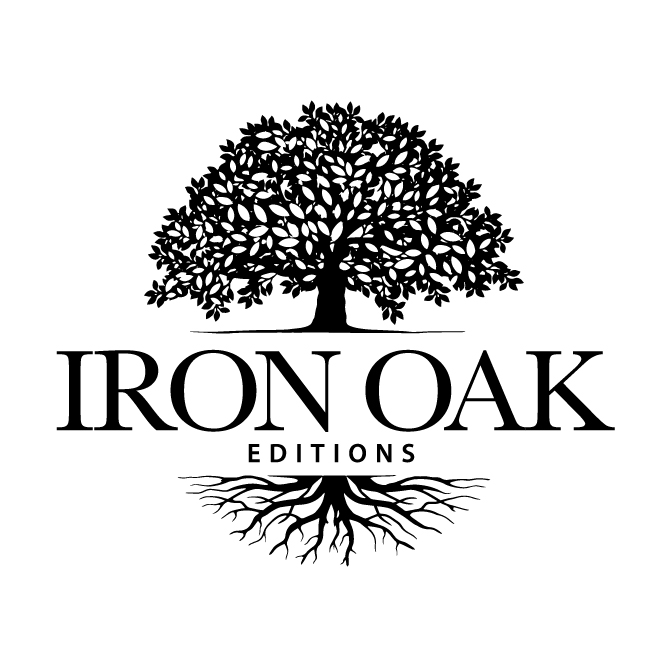by Tom Johnson
April 2, 2024
Thomas Johnson lives in Washington, D.C. and works as Reviews Editor for West Trade Review. He received a Master of Arts in Writing from Johns Hopkins University. Johnson graduated from the University of Texas at Austin before enlisting in the United States Army. His work is available in the Museum of Americana Literary Review, Cleaver Magazine, and Valparaiso Fiction Review.
Like Love by Maggie Nelson; Graywolf Press; 352 pages; $32.00.
I’m reading A Dictionary of Modern American Usage edited by Bryan A. Garner alongside Maggie Nelson’s Like Love for personal reasons, but they speak for each other in the ongoing discourse on what it is we call good writing. Out now from Graywolf Press, Nelson’s latest collection of essays and conversations doesn’t aim to make a singular argument for her thinking or thoughts or ideology. But within its pages, folded into each word used in longform reportage or tossed about loosely in transcribed Zoom calls, Nelson’s writing and language cohere into the modern essence of good writing. But I won’t here pretend to nail down an exact definition or provide an untied metaphor of the same.
 Garner, though, gives us a few workable definitions. We are, in the end, communicating, and our goal, hopefully, is to be understood. Brought to fame by David Foster Wallace’s unimpeachable Authority and American Usage, Garner’s dictionary preempts the reader who wants to use words well and asks for careful writers who want to speak clearly by avoiding Abstractitis, Cliché, and Obscurity, among our other bad habits. These solecisms range from the frustrating to the outright unreadable, but their end effect is the same: confusing a reader. These aren’t Maggie Nelson’s errors. I couldn’t really find an example within any of her selections to pick out and say, this wasn’t the right word. Because they were all the right words.
Garner, though, gives us a few workable definitions. We are, in the end, communicating, and our goal, hopefully, is to be understood. Brought to fame by David Foster Wallace’s unimpeachable Authority and American Usage, Garner’s dictionary preempts the reader who wants to use words well and asks for careful writers who want to speak clearly by avoiding Abstractitis, Cliché, and Obscurity, among our other bad habits. These solecisms range from the frustrating to the outright unreadable, but their end effect is the same: confusing a reader. These aren’t Maggie Nelson’s errors. I couldn’t really find an example within any of her selections to pick out and say, this wasn’t the right word. Because they were all the right words.
 Probably most readers will come to Like Love from somewhere else in Nelson’s canon of work. Probably that might be The Argonauts or Bluets or, more recently, On Freedom. These three alone include, kind of, if I want to give it a shot, a novel, a memoir, and social criticism. They each include elements of the other genres and often get confused, and really trying to hammer down the specific book for the actual message seems to miss the point. This is precisely Nelson’s real magic – from within the well of pop culture, film review, and art essay, rises Nelson’s gift for seeing the right things under the surface of just about anything at all.
Probably most readers will come to Like Love from somewhere else in Nelson’s canon of work. Probably that might be The Argonauts or Bluets or, more recently, On Freedom. These three alone include, kind of, if I want to give it a shot, a novel, a memoir, and social criticism. They each include elements of the other genres and often get confused, and really trying to hammer down the specific book for the actual message seems to miss the point. This is precisely Nelson’s real magic – from within the well of pop culture, film review, and art essay, rises Nelson’s gift for seeing the right things under the surface of just about anything at all.
 Ordered chronologically, Like Love opens with an email exchange conducted with Wayne Koenstenbaum for Poetry Project Newsletter before moving into reviews on Eve Sedgewick’s The Weather in Proust and Ben Lerner’s 10:04. And for fans of Nelson’s truistic lens, you’ll immediately find her looking at eloquent poetics, queer theory, and climate immediacy. It’s in these types of observations that Nelson writes, in clear and plain language, first about the object at hand – the subject, that is, of the chosen selection – and second about its place within this world of ours. Speaking on Lerner, she theorizes, “One of the things we can do, for better or worse, is make art. Whether or not this art takes this predicament as its principal subject may not, in the long run, matter; in retrospect (should we be so lucky), almost all the art we are creating now will likely appear suffused – if not to say gaslit – by the slow-burning anxiety created by the deepening climate crisis, and the wealth gap that is its intimate companion.” And so just when Nelson constructs the above real world setting, the selfsame setting from which her readers sit, she moves directly, and cleanly, into her subjective argument: “Ben Lerner’s 10:04 sets up shop in the eye of this anxiety.” The rest of her review on Lerner’s novel follows, but the real work, the lasting impact we keep, lingers in her ability to make sense of our world in words written as if spoken to us over a meal or while sitting in the park, a linguist at ease and in command: “By the time I finished 10:04, I felt like I understood some options: not being ashamed of the desire to make a living doing what we love, while also daring to imagine 'art before or after capital’; paying as intense attention to our collectivity as to our individuality’s demanding a politics based on more than reproductive futurism, without belittling the daily miracle of conception, nor the labor and mysterious promise of childbearing and -rearing; attempting to listen seriously to others, especially those who differ profoundly from ourselves, no matter how precontaminated the attempts; spending time reading and writing poetry; and more. Far from despair, I felt flooded with the sense that everything mattered.”
Ordered chronologically, Like Love opens with an email exchange conducted with Wayne Koenstenbaum for Poetry Project Newsletter before moving into reviews on Eve Sedgewick’s The Weather in Proust and Ben Lerner’s 10:04. And for fans of Nelson’s truistic lens, you’ll immediately find her looking at eloquent poetics, queer theory, and climate immediacy. It’s in these types of observations that Nelson writes, in clear and plain language, first about the object at hand – the subject, that is, of the chosen selection – and second about its place within this world of ours. Speaking on Lerner, she theorizes, “One of the things we can do, for better or worse, is make art. Whether or not this art takes this predicament as its principal subject may not, in the long run, matter; in retrospect (should we be so lucky), almost all the art we are creating now will likely appear suffused – if not to say gaslit – by the slow-burning anxiety created by the deepening climate crisis, and the wealth gap that is its intimate companion.” And so just when Nelson constructs the above real world setting, the selfsame setting from which her readers sit, she moves directly, and cleanly, into her subjective argument: “Ben Lerner’s 10:04 sets up shop in the eye of this anxiety.” The rest of her review on Lerner’s novel follows, but the real work, the lasting impact we keep, lingers in her ability to make sense of our world in words written as if spoken to us over a meal or while sitting in the park, a linguist at ease and in command: “By the time I finished 10:04, I felt like I understood some options: not being ashamed of the desire to make a living doing what we love, while also daring to imagine 'art before or after capital’; paying as intense attention to our collectivity as to our individuality’s demanding a politics based on more than reproductive futurism, without belittling the daily miracle of conception, nor the labor and mysterious promise of childbearing and -rearing; attempting to listen seriously to others, especially those who differ profoundly from ourselves, no matter how precontaminated the attempts; spending time reading and writing poetry; and more. Far from despair, I felt flooded with the sense that everything mattered.”
 Like her writing, Nelson provides a few direct answers in Like Love for her personal evolution. Halfway through and coming in at only four pages, “The Grind” covers Nelson’s childhood coming-of-age in Like Love’s shortest contribution. It’s actually a quick thought piece on Prince that first appeared in The New Yorker in 2016 shortly after the musician’s death, but in a way that feels relatable and yet swollen with personal confession, Nelson starts, in her manner-of-speaking way, by talking about her father instead: “In 1984, when I was ten, my father died… Energy felt to me then, as it does to so many kids, like an unstoppable force run through a kaleidoscope of affect – at times electric, then liquid, popping, burning. Above all, it felt uncontainable. The miracle is that our skin contains it, for the most part. Was I sexual at ten? I don’t know. I know my father died, and then, suddenly, there was Prince.” The hammer there in the opening line that her father died, it’s simply put but heavily felt. And true to her nature (or vocation; is being a poet a job?), there is poetry in the language that follows; using “kaleidoscope” as the vehicle for “unstoppable force’s” tenor before gaining velocity with “at times electric” and moving into vivid sensation, “then liquid, popping, burning.” But nowhere in shifting from description to metaphor to imagery and sound does Nelson lose hold of her audience – each word selected for its thrill first, but second for remaining within the range of familiarity.
Like her writing, Nelson provides a few direct answers in Like Love for her personal evolution. Halfway through and coming in at only four pages, “The Grind” covers Nelson’s childhood coming-of-age in Like Love’s shortest contribution. It’s actually a quick thought piece on Prince that first appeared in The New Yorker in 2016 shortly after the musician’s death, but in a way that feels relatable and yet swollen with personal confession, Nelson starts, in her manner-of-speaking way, by talking about her father instead: “In 1984, when I was ten, my father died… Energy felt to me then, as it does to so many kids, like an unstoppable force run through a kaleidoscope of affect – at times electric, then liquid, popping, burning. Above all, it felt uncontainable. The miracle is that our skin contains it, for the most part. Was I sexual at ten? I don’t know. I know my father died, and then, suddenly, there was Prince.” The hammer there in the opening line that her father died, it’s simply put but heavily felt. And true to her nature (or vocation; is being a poet a job?), there is poetry in the language that follows; using “kaleidoscope” as the vehicle for “unstoppable force’s” tenor before gaining velocity with “at times electric” and moving into vivid sensation, “then liquid, popping, burning.” But nowhere in shifting from description to metaphor to imagery and sound does Nelson lose hold of her audience – each word selected for its thrill first, but second for remaining within the range of familiarity.
We know these sounds and we feel them as they are written. Her word choice always remains intimate. With that earned intimacy, we sit passenger-side for what follows: a child’s tale about hearing Prince’s raunchy “Darling Nikki” for the first time, learning as a young girl what it means to masturbate, and, more importantly, what masturbating means to a young girl becoming a woman. We’re right there with her even as she ends, unashamedly, on the lowest branch of innuendo and entendre: “It says, The Lord’s coming, Prince is coming. And somehow, with his help, we learned to come, too.” Because we know this feeling – likely we experienced it, too, and need someone to tell us, in calm and mannered prose, that we’re not weird for having this feeling ourselves. All we needed was a good writer to reach us.
I think Like Love will find an easier place on bookstore shelves than her previous works. It is, after all, a collection of essays. It belongs in literary criticism. Bluets seems to find a different section every time I walk through Barnes & Noble, most recently in poetry just last week. And even though Nelson reminds us throughout Like Love that she is first a poet, Like Love is the work of a writer. A thinker, yes, but specifically someone with good words in their bag. The form changes, but the message remains the same.
Garner and Foster Wallace themselves eventually met for their own conversation on the very topic of what makes good writing, of which DFW said that writing well means to communicate clearly and interestingly and in a way that feels alive to the reader. But we shouldn’t get lost in the word “alive” here – DFW rarely hyperbolizes. “Alive” as he means it speaks to our visceral world. To be alive is to live as a human. The best of us, through good writing and effective communication, can make some sense of what that means.
 In 2024, it’s okay to want our writers to have progressive ideologies. Nelson’s topics touch all her keynotes, if that’s what you’re looking for, but I don’t think we’re going out on a limb to ask that of her. Being a good person should be demanded of our writers and thinkers as much as it is with our celebrities and icons. So it’s within Nelson as a good person to notice the layered critiques on “PC Culture” inherent in the works of Hilton Als and how Als’s work empowers the right voices against the right enemies (“Like Love,” the eponymous essay); just as it's within Nelson to position the real life 28-year-old jar of fetid leftovers used in Rachel Harrison’s Dinner exhibition alongside Lars von Trier’s Dogville and their Dadaist precursors (“Eighteen Theses on Rachel Harrison”). Her depth of artistic knowledge is seemingly boundless, but there is no pomposity in its presentation. She swears. It’s like talking over a cigarette about really important things. Reading Nelson as she speaks is an argument itself for immediate, pressing writing. Like sitting in the room during a meaningful conversation.
In 2024, it’s okay to want our writers to have progressive ideologies. Nelson’s topics touch all her keynotes, if that’s what you’re looking for, but I don’t think we’re going out on a limb to ask that of her. Being a good person should be demanded of our writers and thinkers as much as it is with our celebrities and icons. So it’s within Nelson as a good person to notice the layered critiques on “PC Culture” inherent in the works of Hilton Als and how Als’s work empowers the right voices against the right enemies (“Like Love,” the eponymous essay); just as it's within Nelson to position the real life 28-year-old jar of fetid leftovers used in Rachel Harrison’s Dinner exhibition alongside Lars von Trier’s Dogville and their Dadaist precursors (“Eighteen Theses on Rachel Harrison”). Her depth of artistic knowledge is seemingly boundless, but there is no pomposity in its presentation. She swears. It’s like talking over a cigarette about really important things. Reading Nelson as she speaks is an argument itself for immediate, pressing writing. Like sitting in the room during a meaningful conversation.
 It’s in the preface that the author explains her title. It isn’t love in its full actuality that any writer, actor, director, sculptor, artist, or whateverhaveyou can actually transmit to an audience. It’s something like love, full simile. And with real and direct language that feels alive, we might receive the other things that come with Nelson’s body of work – the right ideas and eventually, though probably long after you and I, but somewhere down the road if we all keep trying, a better world.
It’s in the preface that the author explains her title. It isn’t love in its full actuality that any writer, actor, director, sculptor, artist, or whateverhaveyou can actually transmit to an audience. It’s something like love, full simile. And with real and direct language that feels alive, we might receive the other things that come with Nelson’s body of work – the right ideas and eventually, though probably long after you and I, but somewhere down the road if we all keep trying, a better world.
 This is something we should all aspire to. If we can leave Nelson’s collection not only with her thoughts and ideas for how the world works but also with the prescription to make ourselves more clearly understood, and in effect make that better world possible, than we’ve left with something like love.
This is something we should all aspire to. If we can leave Nelson’s collection not only with her thoughts and ideas for how the world works but also with the prescription to make ourselves more clearly understood, and in effect make that better world possible, than we’ve left with something like love.
__________________________________________________________________________________________________________________________________________________________________________
__________________________________________________________________________________________________________________________________________________________________________
__________________________________________________________________________________________________________________________________________________________________________
__________________________________________________________________________________________________________________________________________________________________________
Writing and Love Are the Obvious Things in Like Love by Maggie Nelson
__________________________________________________________________________________________________________________________________________________________________________





